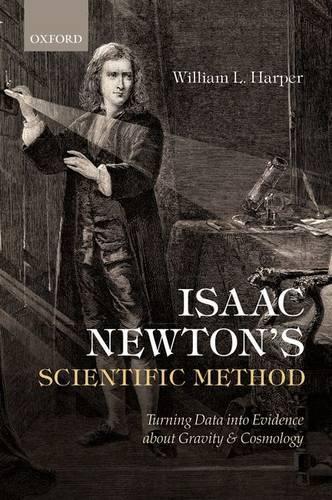Awards
- Winner of Patrick Suppes Prize in Psychology 2014.
- Winner of Winner of the 2014 Patrick Suppes Prize for the philosophy of science awarded by the American Philosophical Society.
Overview
Isaac Newton's Scientific Method examines Newton's argument for universal gravity and his application of it to resolve the problem of deciding between geocentric and heliocentric world systems by measuring masses of the sun and planets. William L. Harper suggests that Newton's inferences from phenomena realize an ideal of empirical success that is richer than prediction. Any theory that can achieve this rich sort of empirical success must not only be able to predict the phenomena it purports to explain, but also have those phenomena accurately measure the parameters which explain them. Harper explores the ways in which Newton's method aims to turn theoretical questions into ones which can be answered empirically by measurement from phenomena, and to establish that propositions inferred from phenomena are provisionally accepted as guides to further research. This methodology, guided by its rich ideal of empirical success, supports a conception of scientific progress that does not require construing it as progress toward Laplace's ideal limit of a final theory of everything, and is not threatened by the classic argument against convergent realism. Newton's method endorses the radical theoretical transformation from his theory to Einstein's. Harper argues that it is strikingly realized in the development and application of testing frameworks for relativistic theories of gravity, and very much at work in cosmology today.
Full Product Details
Author: William L. Harper (University of Western Ontario)
Publisher: Oxford University Press
Imprint: Oxford University Press
Dimensions:
Width: 16.20cm
, Height: 2.20cm
, Length: 23.30cm
Weight: 0.758kg
ISBN: 9780198709428
ISBN 10: 0198709420
Pages: 444
Publication Date: 16 October 2014
Audience:
College/higher education
,
Professional and scholarly
,
Undergraduate
,
Postgraduate, Research & Scholarly
Format: Paperback
Publisher's Status: Active
Availability: Manufactured on demand

We will order this item for you from a manufactured on demand supplier.
Reviews
`This is a serious and learned work that will set a standard for future philosophical analyses of Newton's argument for universal gravitation.' Robert Rynasiewicz, Notre Dame Philosophical Reviews
This is a serious and learned work that will set a standard for future philosophical analyses of Newton's argument for universal gravitation. Robert Rynasiewicz, Notre Dame Philosophical Reviews
In virtue of the significance of Newton's result for the history of science, Harper's book is an important contribution. Journal of the History of Philosophy
`This is a serious and learned work that will set a standard for future philosophical analyses of Newton's argument for universal gravitation.' Robert Rynasiewicz, Notre Dame Philosophical Reviews
Author Information
William L. Harper is Professor Emeritus at the University of Western Ontario, where he has taught since 1970. He has held positions as a visiting Professor at the University of Pittsburgh, Princeton University, and the California Institute of Technology. From 2002 to 2005 he served as President of the Canadian Society for History and Philosophy of Science, having served as First Vice President from 1999 to 2001. He has also served twice on the Governing Board of the Philosophy of Science Association, and was Representative of the Association of Symbolic Logic to the American Association for the Advancement of Science between 1982 and 1988.




